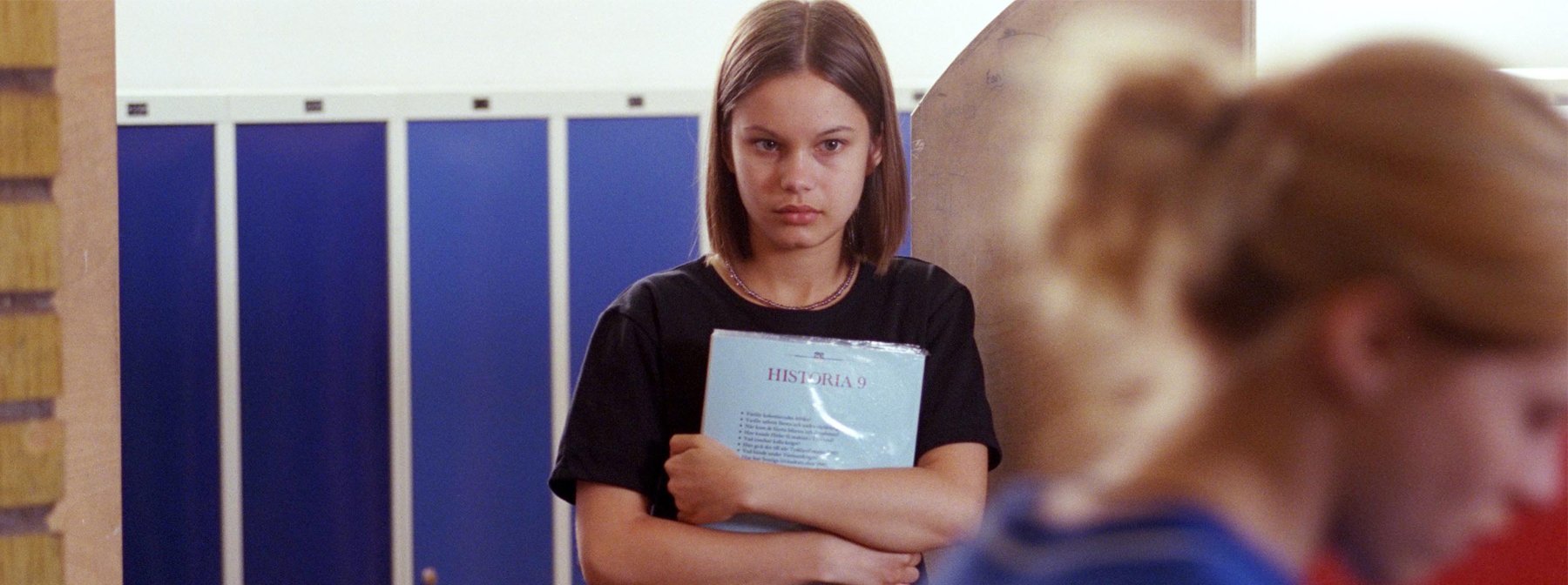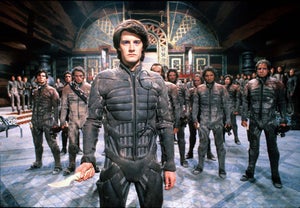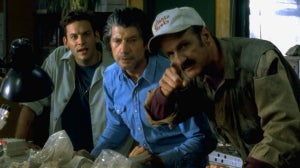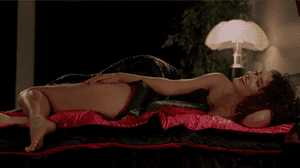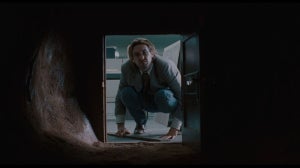
It's been almost a quarter of a century since the release of Lukas Moodysson's debut feature Fucking Åmål (aka Show Me Love), and so it's perhaps easy to forget just what an arthouse cinema sensation he became during those early years of his filmmaking career. Ingmar Bergman, no less, called Fucking Åmål “the first work of a young master”, and the films that followed immediately afterwards, Together and Lilya 4-ever, seemed to prove the efficacy of the great auteur's judgement, being rapturously received by critics and audiences alike. But then Moodysson seemed to deliberately turn his back on such mass acclaim, releasing a pair of films (A Hole in My Heart and Container) that appeared to take perverse relish in being as deliberately shocking and alienating as possible. In this, the director may have succeeded all too well, and in later years, Moodysson never quite seemed to regain the critical heights he'd enjoyed at the outset of his career.
But now, as Arrow prepare to make his seven features available together for the first time, it's at last possible to look back over Moodysson's complete body of work and properly appreciate it as a whole – masterpieces, occasional missteps and all. To this end, then, here are a few selected highlights to keep an eye out for.
Together (2000)
Fucking Åmål had already demonstrated Moodysson's talent with actors and knack for sweetly comic humanism; Together doubled down on the comedy and brought him an even wider audience. A wry account of the trials and tribulations of a 1970s hippie commune, what is remarkable about Together is the way it deftly manages to balance a sly mockery of the commune's naïve (and occasionally downright hypocritical) utopian ideals with a genuinely wistful longing for a world in which such ideals might actually succeed in making a difference. While Moodysson's affection for the people in his films has been quite obvious from the very beginning, he also never shies away from illustrating their various foibles and even their glaring flaws; a refreshing change from typical mainstream notions of what makes a 'sympathetic' movie character. Hilarious and heartwarming in equal measure, Together also shows Moodysson to be a dab hand at the perfectly-chosen needle drop; as he went on to prove over the course of his later career, the director loves music as deeply as he loves his array of oddball characters.
Lilya 4-ever (2002)
Lilya 4-ever signalled the beginning of a far bleaker phase in Moodysson's oeuvre. Show Me Love and Together showed life in all its unpredictable and sometimes hurtful messiness, but we never once doubted that their characters would muddle safely through in the end. But now the director ditched the jokes in favour of an unsparing depiction of grinding poverty, loneliness and tragedy. The story of a teenaged Russian girl who is forced to turn to sex work in a desperate bid to survive, Lilya 4-ever may be almost entirely devoid of Moodysson's usual empathetic humour, but is nevertheless shot through with his trademark humanism. However, as much as the director obviously feels for Lilya's plight, he is under no illusions about what living a life on the margins really does to people, and so is still clear-eyed enough to show Lilya ultimately perpetuating the same grim cycle of abandonment that first led to her own ruination. While the somewhat kitschy religiosity of the film's closing stretch may not be to all tastes, in truth Lilya 4-ever might be an almost unbearable watch without it. As Moodysson himself commented, “it was about how can God exist in a world that is so full of Hell.” If you were ever curious to see what Hell on Earth might really be like, you need look no further than Lilya 4-ever.
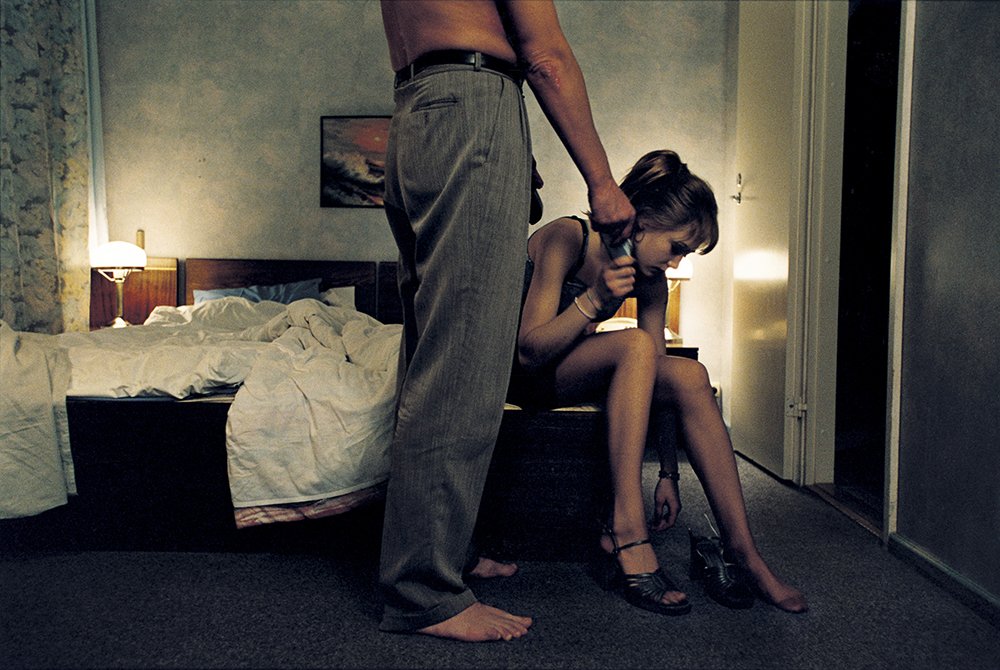
Mammoth (2009)
The director's first (and to date, only) English language film, Mammoth marked Moodysson's return from the wilful cinematic exile represented by A Hole in My Heart and Container. Gone was the stubborn insistence on abjection and alienation, to be replaced by a quieter, simpler Moodysson, albeit one who continued to yearn after an almost impossible utopia. And yet the film was still met with boos and hisses upon its premiere at the Berlin Film Festival. Why? Well, while Mammoth does miss Moodysson's way with humour and is perhaps a bit too earnest for its own good (while also being vastly less pompous than its Oscar-baity forerunner Babel [2006], with which it shares similar themes), its portrait of globalisation and the unthinking arrogance of the West also seemed to be completely misunderstood at the time. Put it this way: when the young New York couple played by Michelle Williams and Gael Garcia Bernal decide in the film's closing scene that they urgently need to find a new nanny – well, if you don't get the bitter irony by then, you're entirely missing the point. Let's hope this re-release finally allows Mammoth the reappraisal it deserves.
We Are the Best! (2013)
For audiences who preferred Moodysson's earlier, funnier, films, We Are the Best! served as a tasty palate cleanser after the melancholic gloom of the run of movies that followed Together. Adapted from a graphic novel by Moodysson's wife, We Are the Best! is a triumphant trip back to the well, a reminder of just how well-suited the director's particular talents are to this sort of warmly humane comedy. An uproarious account of a group of young teenage girls forming a punk band (despite two of them being entirely unable to play their instruments), the film is filled with Moodysson's love of music and once again demonstrates his facility for drawing out beautifully naturalistic performances from a young and inexperienced cast. There are no weighty themes, nothing much even really happens, but none of that stands in the way of We Are the Best! being an absolute joy to watch. Like all of Moodysson's best work, it's a heartfelt paean to the outsiders of the world. So by the time the girls give their chaotic and (literally) show-stopping climactic performance, you'll be pogoing right along with them.
https://www.youtube.com/watch?v=pJTa4EYcdy4

